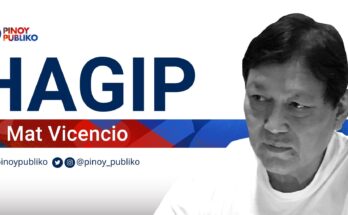IN my previous article I highlighted the quintessential role which communication plays in our delivery of basic education services. Indeed, a lot needs to be improved in our practice as vital lessons from the pandemic continue to pile up to better inform us of the strengths and weaknesses of our communication efforts. Inasmuch as we have all rediscovered previously untapped new channels, profusely and tirelessly innovated, and paved new ways of engaging with our various publics, we also pioneered key efforts and programs to professionalize our ranks and standardize our practice of ‘education communication’.
Because while we deal with the daily or weekly rigors of drafting communication plans and crafting branding for different key programs, the long-term vision for DepEd’s Public Affairs Service (PAS) should always stay in view. That is, to ultimately create a cadre of motivated and professional education communicators who can resiliently weather current and upcoming information crises.
The most urgent back in 2020 when I assumed office was the crafting of the much-awaited National Communications Framework (NCF) which the Public Affairs Service is mandated to create since its foundation in 2015 after the DepEd Rationalization Plan. In my first year of office, we were able to finally release the complete NCF and we are currently updating this year to ensure that it stays relevant to needs of the times. The NCF is the mother document onto which all our plans, processes and people engagement are clearly defined and ethical standards for DepEd communicators is codified. Our policies at the end of the day must always be grounded on the values of government communication practitioners. The DepEd NCF was a pioneering document considering that we are the first national government agency to have its own official and publicly available communications framework in the country.
From the needs identified by the NCF, we consequently initiated the drafting of the much-needed DepEd Social Media Management Policy and DepEd Website Policy to ensure that systems and standards are in place not only to protect the integrity and image of the Department but to ensure that our virtual information properties are fully utilized for the needs and benefit of all of our stakeholders. Being able to finally establish those rules gives clarity of purpose and enables our field personnel to synchronize their efforts with PAS and the Central Office. We hope to accomplish those two policies before the first June this year.
With standards, policy and recognitions come the pressing need for upskilling opportunities and PAS also plans to hold the first Education Communicators Congress, not only to equip all DepEd information officers with the latest competencies and developments in communication but also to gather them together for the first time, to learn together with the end goal of creating a culture of solidarity. In the next few years, we will pursue certification for DepEd communicators with the assistance of national agencies and private organizations.
From framework, to policy, upskilling and on the ground implementation, the tasks are indeed truly daunting. But genuine change and transformation will take time and they can only happen if everyone is onboard. And touchstones of communication excellence abound in DepEd. Last December we launched the first ILAW (Information Leaders Awards) not only to recognize the unsung efforts of our field personnel but rather more importantly to give exemplars of communication excellence to their peers secondary to documenting their key milestones. This year, the Public Affairs Service plans to expand the categories and include not only the Regions and Divisions but school-based personnel as well. Our information frontliners deserve recognition not only for surviving the past two years of the pandemic unscathed but also for forging new pathways and partnerships in the pursuit of learning continuity. After all, their efforts on the ground were the key ingredients in maintaining the high trust rating of the department.
It may also be recalled that the School Information Coordinators (SICs) were created last year thru DepEd Memorandum No. 17 series of 2021 and the effort was a productive offshoot of one of the various consultative meetings with our division information officers. The Central, the Regional and Division offices cannot wing the perennial communication crisis on their own and the frontline needs to be clearly designated and equipped as well. This is part of the ongoing effort to complete the envisioned DepEd communication ecosystem from the Central Office to the schools, which is agile and responsive to the national to local information needs. If the communication battle is to be won, the frontline needs to be secured firstly. After all, the most minute of issues become national media fodder if they are left unresolved at the school level.
It cannot be overstated that in any war or battle, unity and camaraderie are basic requisites. And no amount of public rhetoric, policymaking and upskilling can substitute for unity of heart and purpose. That is exactly what the Public Affairs Service has been diligently hammering for the past two years – that it should not remain as a passive instrumentality which is confined to responding to the daily vagaries of the 24-hour news cycle but must become truly useful in establishing the rules of education communication at a time when it is needed the most.
If PAS desires to be truly relevant, it must outgrow the inertia of the past few years. It needs to become, not only a passive and facilitative service, but an active agent for creativity and solidarity in a department as huge and diverse as DepEd.
Communication in the field of basic education services has indeed changed little in the past decade. Most of the education related issues are almost the same and often vary only by degree and location, but we can create potent solutions to our perennial problems. And sometimes the solutions may not only be coming from ‘outside the box’ but by establishing the previously ‘absent’ dimensions of the ‘box’ firstly. In the absence of the rules, it is necessary to allow them to come forth organically from dialogue and consultative meetings. Because policies are never impactful if they only came from the top, they have to come largely from those who are in the frontlines of daily communication battles.
Communication also requires a keen appreciation of reality. We must have the humility to understand that upgrading antiquated and outdated information systems will require years and it will surely be a continuing and tedious process. Thus, the audacity to experiment and try new things no matter how uncomfortable or radical they may seem is always the first order of the day. Because we should not simply move forward but advance in the right direction with a well-grounded vision and purpose. And that is exactly the route which PAS has decisively taken since 2020.
Certainly, necessity may be the mother of inventions, but crisis, at least in the field of education communication, is the recognizable father of innovations. For us at PAS, while we strive towards the long-term vision of communication excellence, our ideals are not simply random aphorisms but tangible and lived realities.




